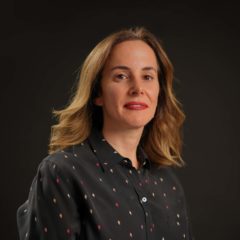Development Alliance Q&A
Five companies have formed a strategic alliance to address economic, social and educational challenges facing communities in the Middle East and North Africa region. The new Development Alliance (“Dev-Alliance”) in the MENA region leverages talents, skills, cultural knowledge and geographic expertise of the companies – including three in Jordan and one in Palestine – to improve locally conceived, designed and led programs. Below are selected comments from interviews with the Alliance members.
Haya Shubailat
Founding Partner
Edvise-ME
Question: Tell us about Edvise-ME?
Haya Shubailat: Edvise-ME is a 100 percent women-owned and women-led business. We focus on the education and the youth sectors. My partner, Nour Abu Ragheb, and I both have a background in development and have worked in the development space for a long time. We believe the key to any development in the country starts with education. Education is the future, and we believe that education also relates to other sectors. As you improve education, you also improve the economy. You also improved the prospects of youth. You also give a voice for youth to express themselves, and it leads to more prosperity in the country.
What does Edvise-ME expect from the Development Alliance?
Haya Shubailat: As a small company, and we want to intentionally remain very niche, we can’t do things alone. And I think that the Alliance gives an opportunity for us to work with like-minded organizations to bring a voice from local experience, local context. We believe in locally rooted solutions and global connections. And we feel this Alliance is giving us the opportunity to provide our knowledge and the context. It’s an opportunity to connect locally and internationally with other organizations. We believe that it’s a great platform to bring attention to key issues with local solutions.
Ghaith Zureiqat
CEO
ConsultUS
Tell us about ConsultUS
Ghaith Zureiqat: ConsultUS was established 13 years ago to work on development in the Eastern North Africa region. We started small, expanded over the years and now involved in several sectors, including economic growth, water, local governance and education. Today, we’re a leading implementer with USAID, as well as working with the World Bank, U.N. agencies, GIZ and other international development agencies. We’re very happy with the progress made from a small company to becoming one of the leading consulting firms in Jordan and the region.
Hadeel Bader
ConsultUS
Why is ConsultUS part of the Development Alliance?
Hadeel Bader: We look at this alliance as a great opportunity to empower local companies within the region to have an active role in responding to the different development needs across the region. The Development Alliance is a very rich opportunity to capitalize on the local resources to respond to the needs. This Alliance is a great opportunity to respond to the different needs that we have in the region, to contextualize the needs and to contextualize the response to these needs.
As a local company, we very much understand the context that our region suffers from across the different sectors. It’s a great way to unite the international development.
Saad Khatib
Senior Partner
Core Associates
Tell us about Core Associates
Saad Khatib: Core Associates was established in 2010. We started as a consulting company focused on trade and trade development. As time passed, we expanded and introduced new concepts, such as industrial development and dealing with World Trade Organization agreements. Today, we are focusing on innovation, startup businesses, trade development, private sector growth, industrial development and socioeconomic growth.
Why is Core Associates part of the Development Alliance?
Saad Khatib: The Development Alliance brings in several partners with varying experiences. When we discuss issues and opportunities, we can develop new concepts to address challenges in our communities. My dream is to use this space to introduce new ideas, new concepts – not just going with what donors are offering – to actually move forward with new solutions that would improve the development process, meet the needs of the people and help in improving the socioeconomic situation in the region in general.
Mohamad Amawi
ATA
Tell us about ATA
Mohamad Amawi: Our company was established in Jordan in 2010 and we specialize in public policy development, an area that few development companies specialize in.
What does ATA hope to achieve through the Alliance?
Mohamad Amawi: We hope that by sharing experience, market intelligence and by combining the experience of all members, we have more chances of implementing successful projects. It will help local companies to learn more and to have more exposure to best practices in international development. We will plan projects together and implement them together. Ultimately, our goal is to have a positive impact on citizens of the Middle East.
